N.B. This is a sample
syllabus for the English 222 course I taught in
the Spring of 1998.
The actual syllabus for English 222 in
Spring of 1999 will be somewhat
different. The main text for the course in
Spring 1999 will be the
Longman Anthology of English Literature, Vol. 2--DB
English 222
British Literature,
Nineteenth and Twentieth
Centuries
Spring 1998
Dan
Bivona
-
-
-
Class meets: M, W from 9:40-10:30 in LL
C57
-
-
Dan Bivona's
Office Hours
-
M, W 1-3 and by appointment
-
Office: LL-C339
-
Phone: 5-7748
-
-
Friday discussion sections:
-
| Section number |
TA |
Class meets |
Office Hours |
Office |
|
15406
|
Jeremy Meyer |
LL C157 |
MW 10:30-12;
F 10:30-11:30 |
LL B338 |
| 24128 |
John Tierney |
LL B146 |
M 11:30-1:30;
WF 11:30-12:30 |
LL B345 |
|
79720
|
Tiffany Chen |
LL B138 |
MW 8:35-9:35;
10:35-11:35 |
LL C316 |
You may make an appointment to see any
of these instructors at another time if these hours are not convenient.
Phone number of the TAs: 5-3853.
|
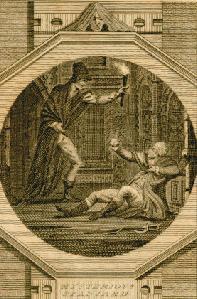
|
-
Course Rationale:
-
-
222 surveys British literature from the early 19th
century through the late 20th century. While we cannot possibly do
an exhaustive job of treating the three major literary genres (we do some
justice to the novel and poetry but very little to drama), we will be discussing
at least some representative works from each of the major movements and
periods. Because this is a survey course, it makes no pretense to
thematic unity. Rather, some lectures will touch on the broad spectrum
of literary, historical, and intellectual issues out of which this literature
emerged; others will zoom in on the literary works under discussion for
the week.
-
-
-
-
Requirements:
-
-
There are four major requirements comprising 90%
of your grade: a midterm essay exam (25%), two 5-7 page
critical essays (20% each), and a final essay exam (25%).
The due dates for these are marked in the syllabus below. Topics
for the critical papers will be distributed in class 2 weeks before the
paper is due. In addition to these, 10% of your final grade will
come from your participation during class discussions and from your grades
on the quizzes, which will be given randomly and without advance
notice. Attendance at all lectures and active participation in class
discussions are absolutely essential to success in this course. Please
take comprehensive notes on your reading and have all reading assignments
completed by the day on which they are due to be discussed.
-
-
The purpose of this online syllabus is to point you
toward Web sites which provide additional information about writers, about
writing essays, and about literary theory. You may also email any of your
instructors with questions about paper topics and tests. If you have questions
about getting started on a paper, you can help us help you by providing
us with a thesis paragraph and asking us to respond to it. General grading
guidelines for the critical papers can be found here.
-
-
N.B. We expect that your papers will conform to
ASU guidelines on academic honesty. That is, we expect that all work is
your own except for that which you have explicitly cited on your "Works
Cited" page. This means you must cite ideas and words borrowed from online
sources as well as from books and articles found in the library. If you
have further questions about this policy, see the statement issued by the
Women's Studies Program here.
It provides a succinct summary of the policy in effect in this class.
-
-
If you are interested in a readable introduction
to basic theoretical issues, start by taking a look at John
Lye's Literary Theory: An Introduction and the
Glossary
of Literary Theory. For links to sites that offer
help with rhetorical terms or with mythological background, see Starting
Point for Literary Research. Essays written for
this class should conform to the conventions set out in the MLA
Format and Citation Guide. You may find it useful
to consult a writing handbook. The following three are currently available
on the Web: Elements
of Style, Online
English Grammar, and Able
Writer: A Rhetoric and Handbook. You should also
make use of a dictionary such as the WWWebster
Dictionary.
-
-
To start, see ASU's
Hayden Library. For useful general sources
of information consult the following: Literary
Resources Page, Encyclopedia Britannica
(ASU only), and Voice
of the Shuttle. For online literary texts try
these sites: Modern
English Collection, The
Online Books Page, and Literature
Online (Chadwyck-Healey; ASU only). The
latter database is also useful for keyword, phrase, and line searches of
British and American poetry, British drama, and some fiction (the online
fiction collection of this database is presently rather small). You
may also find the British
History Timeline a useful source of historical
information. While there is not much online literary criticism currently
available, you may find the IPL
Online Literary Criticism site and Project
MUSE useful.
-
-
-
-
Books (Required Reading):
-
-
Abrams et al. Norton Anthology of English Literature. Vol. 2, 6th
ed. (Norton).
-
-
Shelley, Mary. Frankenstein. (NAL).
-
-
Brontë, Charlotte. Jane Eyre. (Norton).
-
-
Wilde, Oscar. The Picture of Dorian Gray. (Oxford).
-
-
Forster, E. M. Passage to India. (HBJ).
-
-
These books are now available at the ASU Bookstore.
|
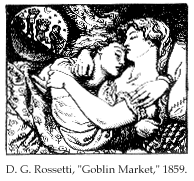
|
-
Required readings in the schedule below come from the 5 books ordered for
the course. Page numbers refer to pages in The Norton Anthology
of English Literature, Vol. 2. The other links will take you
to websites that provide further information on specific topics. For a
list of paper topics for the first critical paper, go here.
For a list of paper topics for the second critical paper, go here.
-
Romanticism
-
Wordsworth and Coleridge (W, 1/21 to F, 1/30)
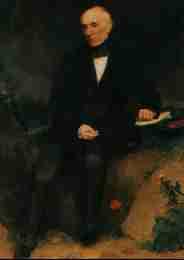
|
W, 1/21: Introduction: Romantic
Period overview
F, 1/23: "Ode.
Intimations of Immortality from the Recollections of Early Childhood" (187),
"We
Are Seven," (132) "Lines
composed a few miles above Tintern Abbey" (136)
Romantic Resources
on the Web; John
Locke
Michael
Gamer's List of Romantic Links
William Wordsworth,
Wordsworth Images
Romantic
Chronology, The
Romantic Period, 1785-1830
Preface
to Lyrical Ballads
M, 1/26 Romantics and the Problem of Origins: Inventing
Childhood (Wordsworth)
W, 1/28: Romantics and the Problem of Origins: Self
as Source (Coleridge): "The
Rime of the Ancient Mariner" (330)
Coleridge's
Biographia Literaria. Vol. I
David
Hume; Kant's
Prolegomena
[On the Coleridgean "Imagination," see also "Dejection:
An Ode," "This
Lime-tree Bower My Prison and Kubla
Khan."]
F, 1/30: Wordsworth and Coleridge discussion continued |
M, 2/2: Natural
Supernaturalism and the Familial Ideology: Mary
Wollstonecraft Shelley
Frankenstein
or, The Modern Prometheus
W, 2/4: Hating What You Make: Frankenstein continued
F, 2/6: continued; Resources
for the Study of Frankenstein; Byron's
Manfred; P.B.
Shelley's Prometheus
Unbound
John
Milton,Paradise Lost (ASU only)
M, 2/9: Romantic Agony and Romantic Melancholy
Prometheus
Library
W, 2/11: The
Pleasures of Pain: John
Keats
"Ode
on Melancholy" (794), "Ode
on a Grecian Urn" (792), "Ode
to a Nightingale" (790)
Edmund Burke, "A
Philosophical Enquiry into the Origin of Our Ideas of the Sublime and
Beautiful"
(excerpts); Aristotle,
Poetics
F, 2/13: Keats, cont. **First
critical paper due.** Grading
guidelines for the critical papers. Topics
The Victorian Period
M, 2/16: Evangelical
Reform and the Evolution of "Victorian" Manners
Landow
on Religion, Landow
and "The Doctrines of Evangelical Protestantism"
Browse
Landow's Victorian Web
W, 2/18: The
Victorian Bildungsroman and the Liberal Subject ("The
Bildungsroman Genre: Great
Expectations,
Aurora Leigh, and Waterland," Suzanne Hader)
Charlotte
Brontë, Jane Eyre (Elizabeth
Gaskell's The Life of Charlotte Bronte)
Liberalism
and Cultural Shock in the Victorian Age; John
Stuart Mill, On Liberty
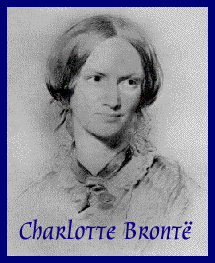
F, 2/20: Jane Eyre continued
The
Gothic, From the "Dictionary of Sensibility" see: sympathy,
The
Sublime, fear/terror/horror,
compassion/pity,
character
M, 2/23: "Ceaseless excitation and ruthless restraint":
The Erotics of Restraint in Jane Eyre
W, 2/25: Jane Eyre continued
F, 2/27: Jane Eyre continue
M, 3/2: **Midterm
Exam**
W, 3/4: Natural and Unnatural Selection
F, 3/6: Tennyson continued
M, 3/9: Tennyson continued
W, 3/11: Hardy
F, 3/13: Hardy/Tennyson continued
M, 3/16-F, 3/20: Spring Recess
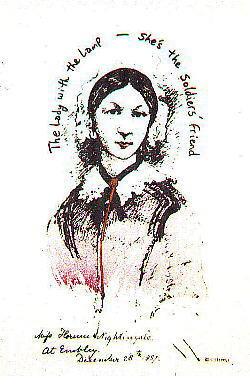
Victorian Women
M, 3/23: The Explanatory Power of "Gender": the Victorian
"Woman Question"
Wollstonecraft (98-125), Stickney Ellis,Coventry
Patmore, Martineau, Mulock, Florence
Nightingale, Annie Besant
(1595-1611), Christina
Rossetti, "Goblin Market" (1479)
A
Vindication of the Rights of Woman (Full Text)
Victorian Women Writers
Project
Victorian
Women's History
Victorian
Gender and Sexuality
John Stuart
Mill, The Subjection of Women
W, 3/25: Gender continued
Caroline
Norton, English Laws for Women [1854]
F, 3/27: "Goblin Market" continued
Josephine
Butler, "Social Purity" [1879]
The Emancipation
of Women: 1860 to 1920
M, 3/30: Loving Oneself as Work of Art: Aestheticism
and the Decadents
Epicurus
Algernon
Charles Swinburne, "Hymn
to Proserpine" (1514), "The
Garden of Proserpine" (1517), "Ave
Atque Vale" (1519)
W, 4/1: Walter Horatio
Pater, "The Child in the House" (1534), "Conclusion"
to The Renaissance (1532)
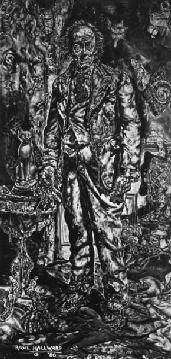 Oscar
Wilde's The
Picture of Dorian Gray
Oscar
Wilde's The
Picture of Dorian Gray
The Complete Works of Oscar
Wilde
Gilbert
and Sullivan's Patience
Oscariana, The
Wild Wilde Web, Sex,
Scandal and the Novel
F, 4/3: Aestheticism and Decadence continued
M, 4/6: **Second Critical Paper
due** Topics
Paideia and Pederasty:
Dorian Gray continued
Plato's Symposium
and Phaedrus
Gay History and
Literature
John Addington
Symonds, "A Problem in Greek Ethics"
Michel
Foucault Links
W, 4/8: Dorian Gray continued
F, 4/10: Dorian Gray continued
Modernism
M, 4/13: Modernism
and Culture (Modernity)
William
Butler Yeats, "Easter,
1916," "The
Second Coming," "Sailing
to Byzantium," "Crazy
Jane Talks with the Bishop," "Under
Ben Bulben" (1878, 1880, 1883, 1890, 1894)
T.S.
Eliot: "Tradition
and the Individual Talent" (2170) and "The
Love Song of J. Alfred Prufrock" (2140)
W, 4/15: continued
F, 4/17: continued
M, 4/20: Imperialism,
Racial
Ideology, British
Nationalism
Rudyard
Kipling, "Danny
Deever" (1674), "The Widow at Windsor" (1675), "Recessional"
(1677), "The
White Man's Burden"
Felicia
Dorothea Hemans, "England's Dead" (882); "Casabianca" (884)
Forster, Passage
to India
Never the Twain?
Indo-British Relations
W, 4/22: continued
F, 4/24: continued
M, 4/27: Imperialism
and the Problem of Language: Passage
to India
Dr. Godbole's India: The
Notion of Time in India: An Introduction; The
Relation Between Sanskrit and Indian Conceptions of Time; Dr. Aziz's
India: Mourning
Past Glories, Colonialism, and Indian Fiction; Conceptions
of Time and Classical Indian Historiography
W, 4/29: continued
F, 5/1: continued
M, 5/4: "No postmodernism,
please; we're British"
Harold Pinter, The Dumb Waiter (2362)
Postmodernism
and drama; What
is Postmodernism? (Mary Klages); Postmodern
Culture (online journal); Postmodernism
(Swirl)
W, 5/6: continued
**Final Exam** Monday, May 11, 7:40-9:30. Here
is a sample
final exam.
N.B. Please bring a bluebook or two to the
exam on Monday.

Victorian
Animated GIFs
-
-
-
-
-
-





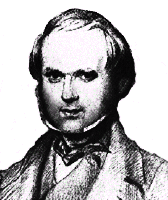

Oscar Wilde's The Picture of Dorian Gray